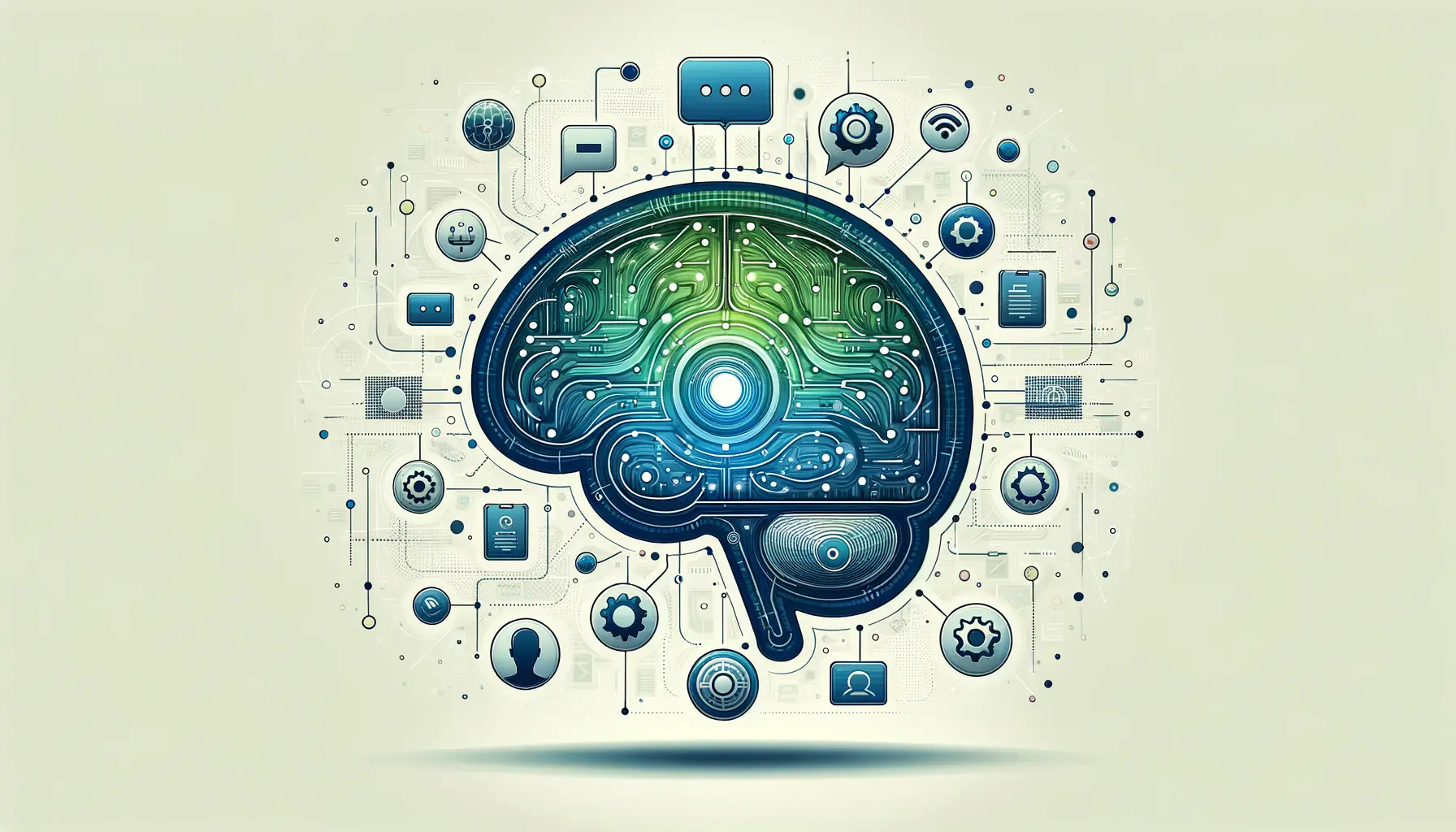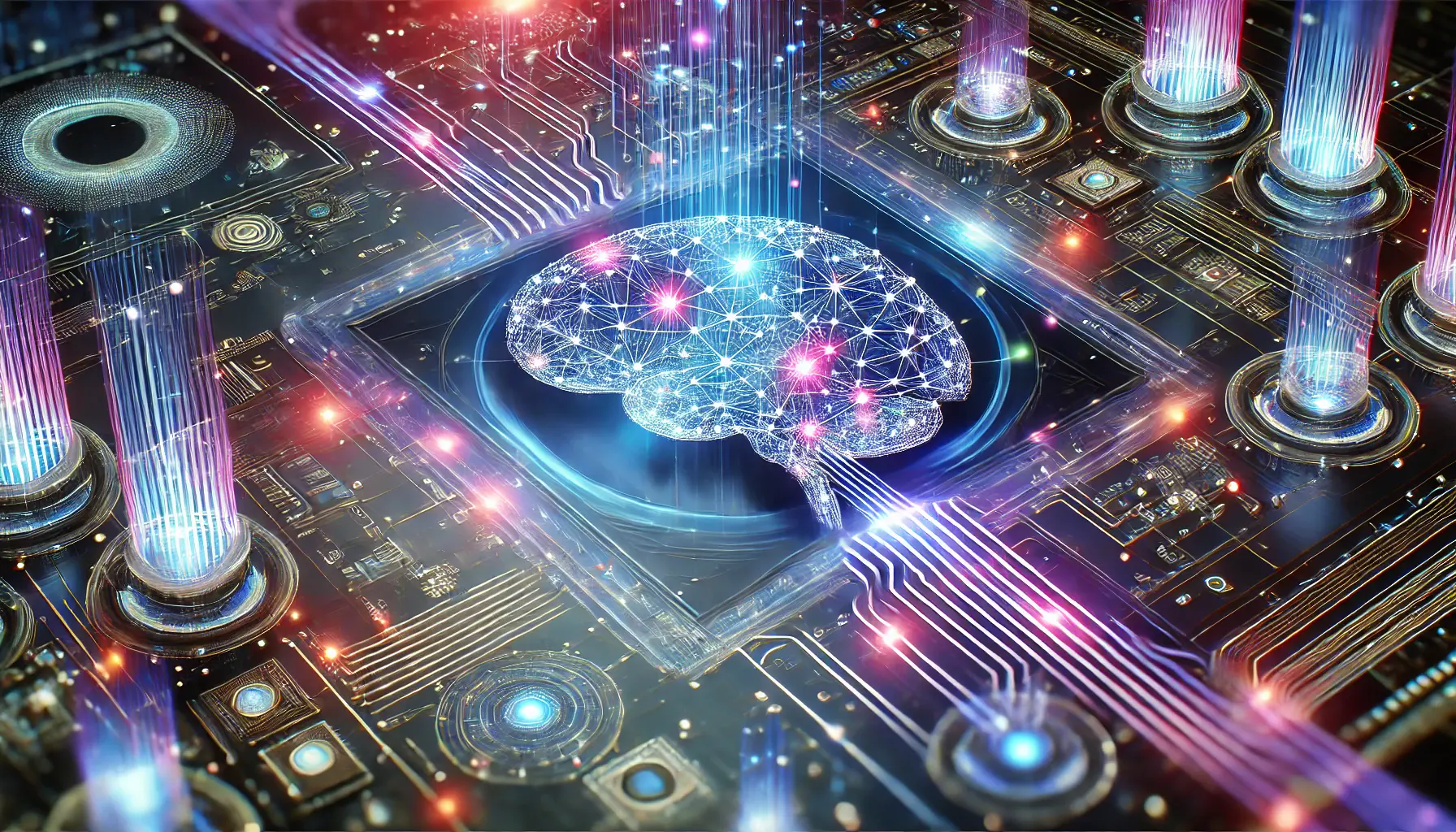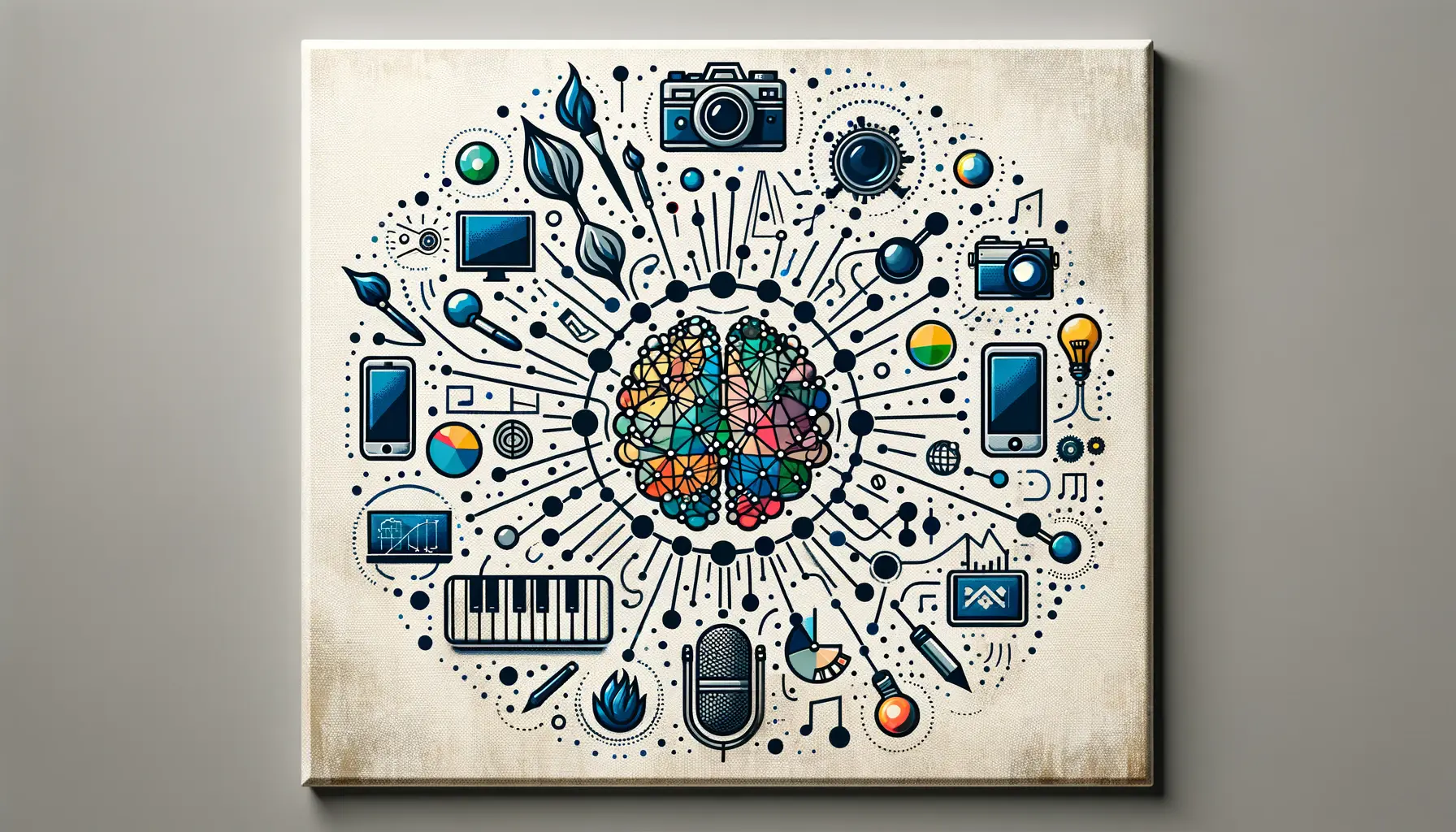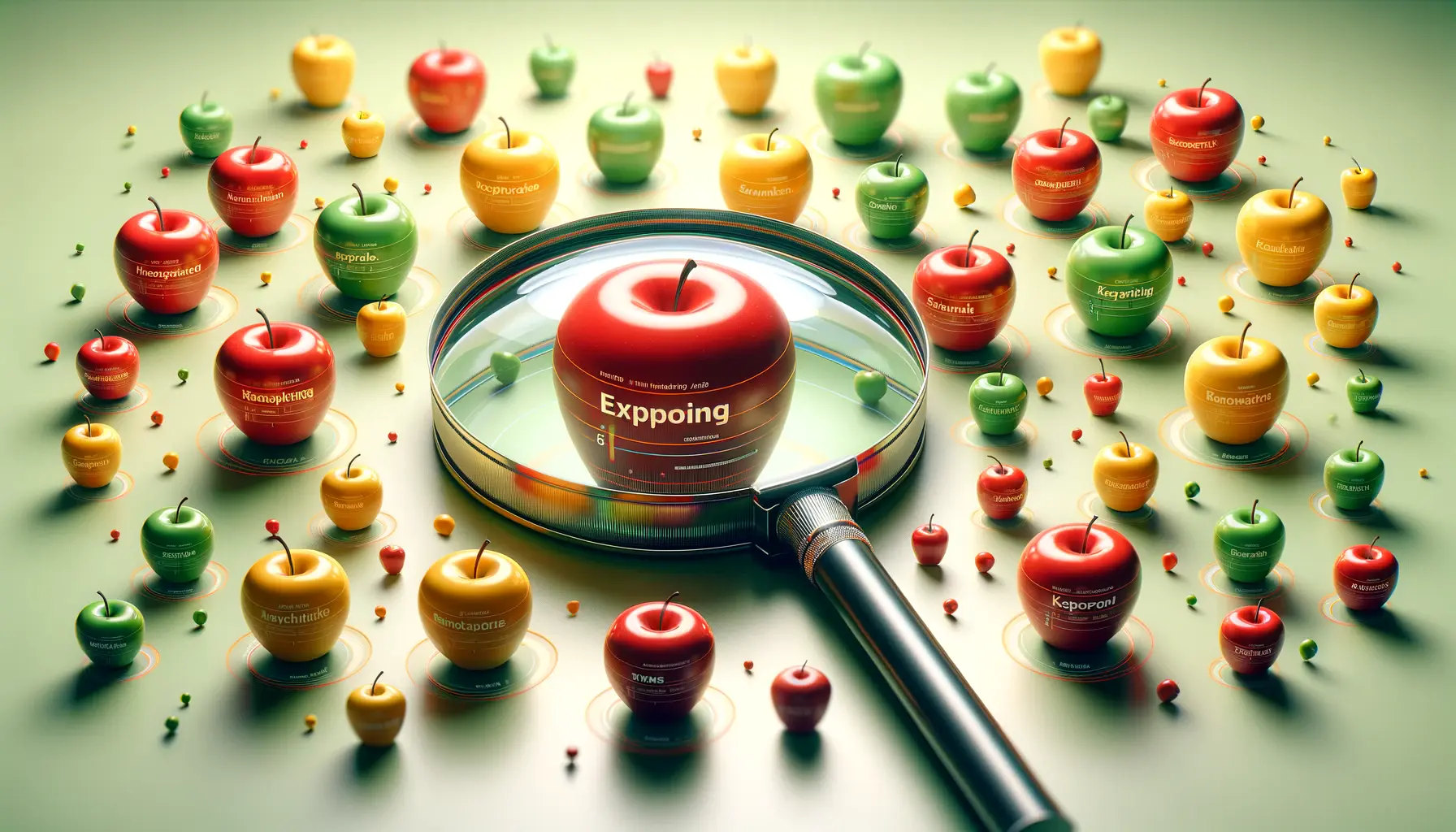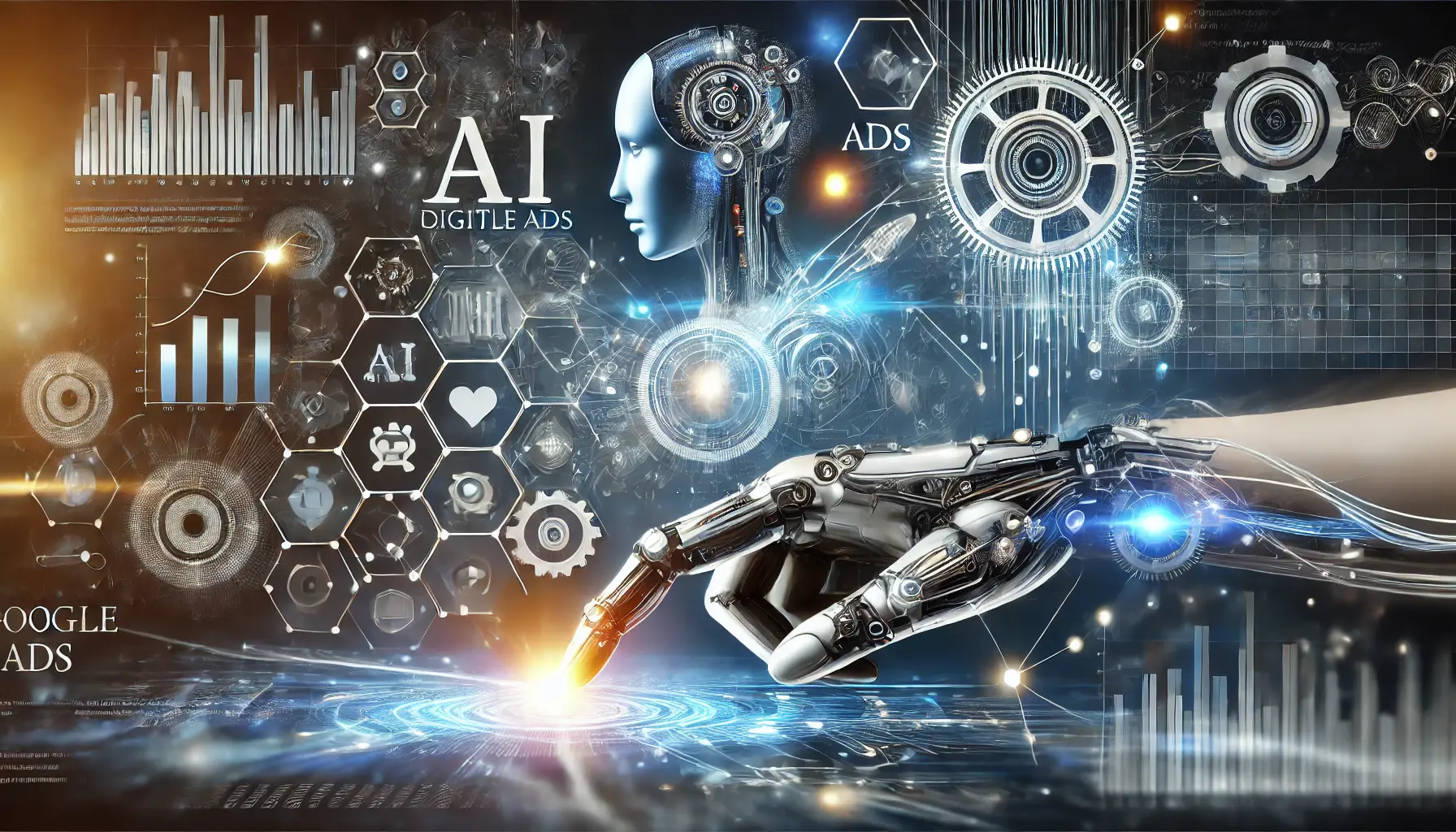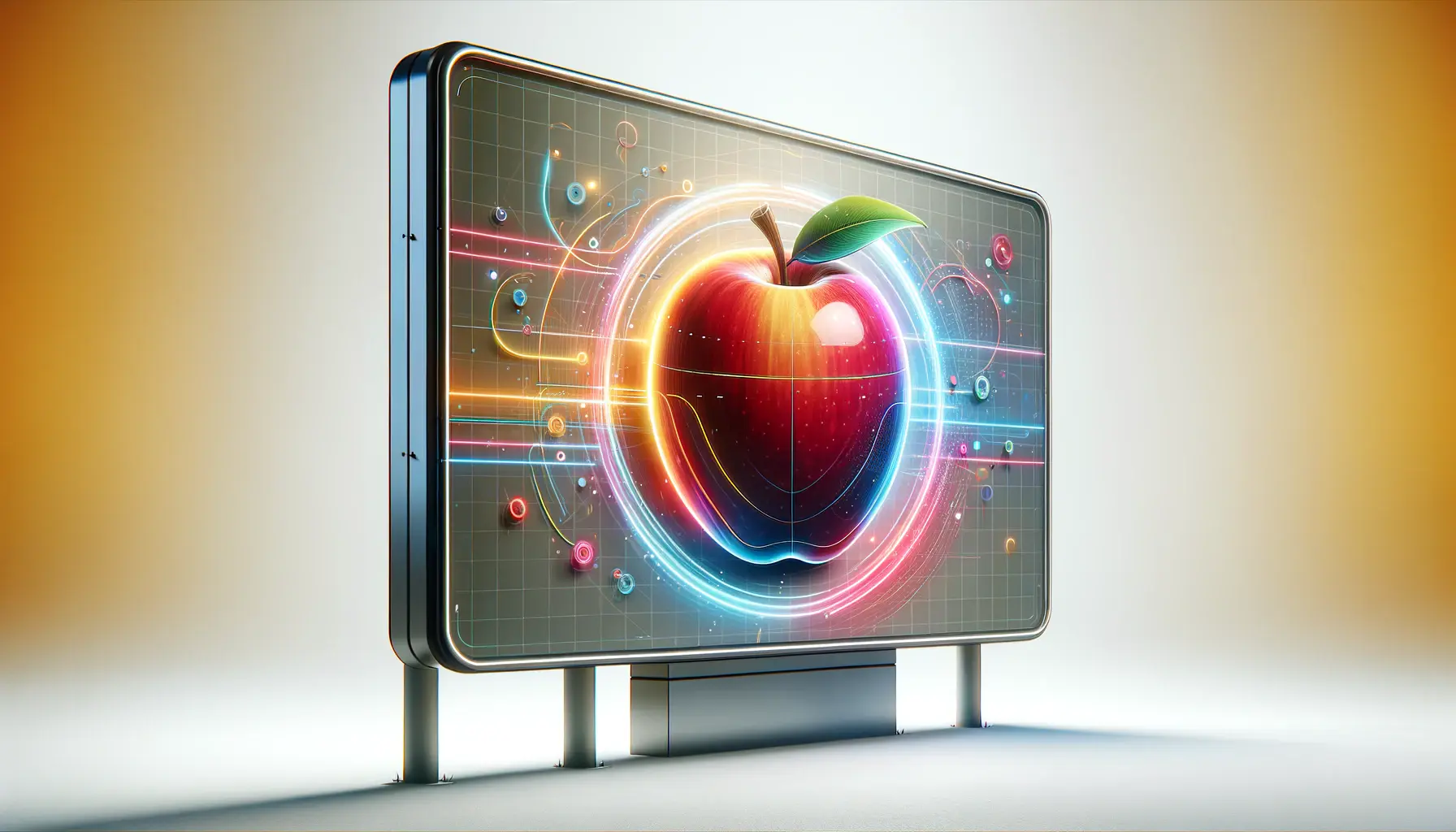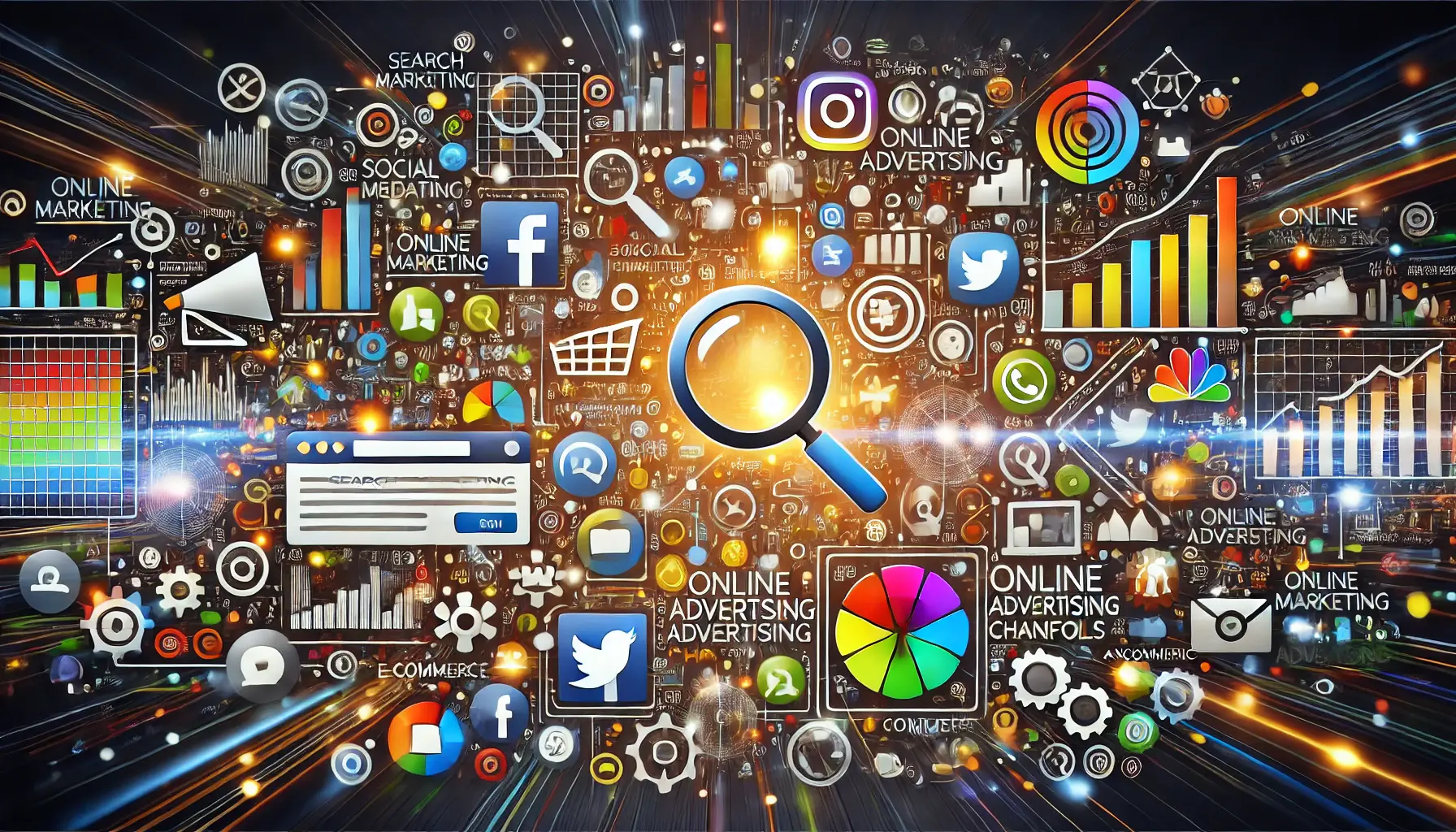The advent of artificial intelligence has ushered in a new era of technological innovation, transforming the way we interact with digital platforms.
Among the forefront of these advancements is Claude AI, a cutting-edge chatbot developed by Anthropic.
This AI chatbot is not just another addition to the growing list of digital assistants; it represents a significant leap forward in natural language processing and machine learning.
Claude AI is designed to engage users in meaningful conversations, offering responses that are not only relevant but also contextually aware, making it a fascinating subject for exploration.
As we delve into the capabilities of Claude AI, it’s essential to understand the foundation upon which it is built.
Leveraging advanced algorithms and a vast knowledge base, Claude AI aims to provide an interactive experience that rivals human conversation.
This exploration is not just about understanding what Claude AI can do but also about appreciating the potential it holds for future applications.
From customer service to personal assistance and beyond, Claude AI’s capabilities hint at a future where AI chatbots play a central role in our digital lives.
- Introduction to Claude AI
- Understanding Claude AI’s Conversational Abilities
- Exploring Use Cases for Claude AI
- Integrating Claude AI into Business Operations
- Challenges and Considerations in Adopting Claude AI
- Future Prospects of Claude AI
- Maximizing the Impact of Claude AI
- Conclusion: The Transformative Potential of Claude AI
- Claude AI Chatbot Capabilities: Frequently Asked Questions
Introduction to Claude AI
Claude AI emerges from Anthropic’s vision to create an AI that prioritizes safety, honesty, and helpfulness.
This chatbot is built on the principles of Constitutional AI, ensuring that its interactions are not only intelligent but also ethically aligned.
Claude AI’s development is a response to the growing demand for more sophisticated chatbots capable of handling a wide range of tasks, from simple queries to complex conversations requiring nuanced understanding.
The core of Claude AI’s functionality lies in its ability to process and understand natural language.
This capability is powered by large language models (LLMs) that have been trained on diverse datasets, enabling Claude to engage in conversations across various topics.
Whether it’s providing summaries of lengthy documents, generating creative content, or offering decision-making assistance, Claude AI showcases a versatility that sets it apart from its predecessors.
Key Features of Claude AI
At the heart of Claude AI’s appeal are its key features, which include an impressive ability to understand complex questions, maintain contextual awareness throughout conversations, and provide responses in multiple languages.
This versatility is complemented by Claude’s capacity to translate text, summarize information, and even generate code in various programming languages.
Such features not only demonstrate Claude AI’s technical prowess but also its potential to revolutionize how we interact with AI chatbots.
Moreover, Claude AI’s design emphasizes user safety and data privacy, ensuring that interactions are secure and respect user confidentiality.
This commitment to ethical AI practices is a cornerstone of Claude’s development, reflecting Anthropic’s dedication to creating AI technologies that benefit society as a whole.
Claude AI’s capabilities extend beyond mere conversation, offering a glimpse into the future of AI chatbots as versatile, intelligent, and ethically aligned digital assistants.
Understanding Claude AI’s Conversational Abilities
Claude AI’s conversational abilities are a testament to the advancements in AI technology, particularly in natural language processing (NLP) and machine learning.
These capabilities allow Claude to engage in dialogues that are remarkably human-like, providing users with an interactive experience that goes beyond simple question-and-answer formats.
The sophistication of Claude AI’s conversational skills can be attributed to its extensive training on diverse datasets, enabling it to understand and respond to a wide array of topics with accuracy and relevance.
What sets Claude AI apart is not just its ability to converse on various subjects but also its proficiency in maintaining the context of a conversation.
This ability ensures that interactions with Claude are coherent and meaningful, even over extended dialogues.
Let’s explore some of the key aspects of Claude AI’s conversational abilities:
Advanced Natural Language Understanding
- Contextual Awareness: Claude AI can keep track of the conversation’s context, allowing for responses that are not only relevant but also build on previous exchanges.
- Complex Question Handling: It is adept at parsing and responding to complex queries, demonstrating a deep understanding of the subject matter.
Multi-Lingual Support
- Language Versatility: Claude AI supports conversations in multiple languages, making it accessible to a global user base.
- Translation Capabilities: Beyond mere conversation, Claude can translate text between languages, facilitating cross-lingual communication.
Personalized User Interactions
- Adaptive Responses: Claude AI tailors its responses based on user preferences and past interactions, offering a personalized experience.
- Emotional Intelligence: It can detect and respond to the emotional tone of the user, adding a layer of empathy to its interactions.
Claude AI’s conversational abilities are underpinned by its sophisticated NLP and machine learning frameworks, enabling it to engage users in meaningful and contextually aware dialogues.
The implications of Claude AI’s conversational skills extend far beyond mere novelty.
In customer service, for example, Claude can provide support that is both efficient and personalized, addressing customer needs in a manner that feels genuinely human.
Similarly, in educational applications, Claude’s ability to understand and respond to complex questions can make it an invaluable learning assistant, capable of guiding users through intricate subjects with ease.
Exploring Use Cases for Claude AI
The versatility of Claude AI opens up a plethora of applications across various industries, transforming how businesses and individuals interact with AI technology.
Claude’s advanced capabilities make it an ideal solution for tasks that require not just automated responses but a deep understanding of context and nuance.
Here, we delve into some of the most compelling use cases for Claude AI, showcasing its potential to revolutionize different sectors.
Customer Support and Engagement
- Claude AI can handle customer inquiries in real-time, providing accurate and contextually relevant responses that enhance customer satisfaction and loyalty.
- Its ability to understand and respond to emotional cues allows for more empathetic customer interactions, making digital support feel more personal and engaging.
Content Creation and Summarization
- Writers and content creators can leverage Claude AI to generate ideas, draft articles, or even create entire pieces of content, streamlining the creative process.
- For researchers and professionals inundated with information, Claude’s summarization capabilities can distill lengthy documents into concise summaries, saving valuable time.
Educational Assistance
- Claude AI can serve as a personalized tutor, providing explanations, answering questions, and offering feedback to students across various subjects.
- Its multilingual support and ability to adapt to the user’s knowledge level make Claude an invaluable tool for language learning and other educational applications.
Healthcare Assistance
- In the healthcare sector, Claude AI can assist with patient triage, offering preliminary advice based on symptoms described by patients before they see a healthcare professional.
- It can also support medical professionals by summarizing patient histories or research papers, aiding in diagnosis and treatment planning.
The application of Claude AI in these areas not only enhances efficiency but also introduces a level of personalization and understanding that was previously unattainable with traditional AI systems.
The use cases for Claude AI are not limited to the examples mentioned above.
Its capabilities can be tailored to fit the needs of virtually any industry, from legal and financial services to entertainment and beyond.
As Claude AI continues to evolve, we can expect its applications to expand, further embedding AI into the fabric of our digital lives and opening up new possibilities for innovation and interaction.
Integrating Claude AI into Business Operations
The integration of Claude AI into business operations marks a significant shift towards more intelligent, efficient, and personalized services.
Businesses across various sectors are recognizing the potential of Claude AI to transform their operations, from automating routine tasks to enhancing customer experiences.
This section explores how Claude AI can be seamlessly integrated into different aspects of business operations, driving innovation and competitive advantage.
Automating Customer Service
- By integrating Claude AI into customer service platforms, businesses can automate responses to frequently asked questions, reducing wait times and freeing up human agents to handle more complex inquiries.
- Claude’s ability to understand context and maintain conversation history allows for more personalized customer interactions, even in automated settings.
Enhancing Content Marketing Strategies
- Content marketers can use Claude AI to generate ideas, draft content, and even analyze the effectiveness of different content strategies, optimizing their marketing efforts for better engagement and reach.
- Claude’s summarization capabilities can also be used to create concise versions of existing content, making it more accessible to a wider audience.
Streamlining Internal Communications
- Claude AI can facilitate internal communications within organizations by acting as a central hub for information sharing, scheduling, and task management, improving collaboration and productivity.
- Its natural language processing abilities enable it to understand and execute commands, making it an effective tool for managing workflows and automating routine tasks.
Supporting Decision-Making Processes
- Business leaders can leverage Claude AI’s data analysis capabilities to gain insights into market trends, customer behavior, and operational efficiency, informing strategic decisions.
- Claude can also simulate different business scenarios, helping executives explore potential outcomes and make informed decisions.
The integration of Claude AI into business operations not only enhances efficiency but also fosters innovation, enabling businesses to stay ahead in the rapidly evolving digital landscape.
The adaptability of Claude AI means that its integration can be customized to meet the unique needs and challenges of each business.
Whether it’s through enhancing customer interactions, streamlining internal processes, or supporting strategic decision-making, Claude AI offers a versatile solution that can drive significant improvements in business operations.
As more businesses adopt Claude AI, we can expect to see a shift towards more agile, intelligent, and customer-centric operations across industries.
Challenges and Considerations in Adopting Claude AI
While the adoption of Claude AI presents numerous opportunities for innovation and efficiency, it also comes with its set of challenges and considerations.
Businesses and individuals looking to integrate Claude AI into their operations must navigate these potential hurdles to fully leverage the chatbot’s capabilities.
This section outlines some of the key challenges and considerations in adopting Claude AI, providing insights into how they can be addressed.
Data Privacy and Security
- Implementing AI solutions like Claude AI raises concerns about data privacy and security. Ensuring that user data is handled securely and in compliance with privacy regulations is paramount.
- Businesses must establish robust data protection measures and transparent privacy policies to build trust with users and comply with legal requirements.
Integration with Existing Systems
- Seamlessly integrating Claude AI into existing business systems and workflows can be challenging, especially for organizations with legacy systems.
- It requires careful planning, customization, and possibly the development of APIs or middleware to ensure compatibility and functionality.
Managing User Expectations
- As AI technology continues to evolve, managing user expectations regarding the capabilities and limitations of AI chatbots like Claude AI is crucial.
- Clear communication about what Claude AI can and cannot do helps prevent frustration and ensures a positive user experience.
Continuous Learning and Improvement
- For Claude AI to remain effective and relevant, it requires ongoing training and updates to its knowledge base and algorithms.
- Businesses must commit to continuous improvement, incorporating user feedback and staying abreast of advancements in AI technology.
Assuming that Claude AI can fully replace human interaction in all scenarios is a common misconception. While Claude AI can enhance efficiency and support various tasks, it should complement rather than replace human expertise and empathy.
Addressing these challenges requires a strategic approach that considers the technical, ethical, and operational aspects of AI integration.
By prioritizing data privacy, ensuring seamless integration, managing user expectations, and committing to continuous improvement, businesses and individuals can overcome these hurdles and harness the full potential of Claude AI.
As the AI landscape continues to evolve, staying informed and adaptable will be key to successfully adopting and benefiting from AI technologies like Claude AI.
Future Prospects of Claude AI
The landscape of artificial intelligence is perpetually evolving, with Claude AI standing at the forefront of this technological revolution.
As businesses and individuals increasingly recognize the value of AI in enhancing efficiency, personalization, and decision-making, the future prospects of Claude AI appear both promising and expansive.
This section explores the potential directions for the growth and application of Claude AI, highlighting the transformative impact it could have on various sectors.
Advancements in AI Technology
- Continued research and development in AI and machine learning are expected to further enhance Claude AI’s capabilities, making it even more versatile, accurate, and contextually aware.
- Future iterations of Claude AI could incorporate advanced features such as improved emotional intelligence, deeper domain-specific knowledge, and enhanced multilingual support.
Expansion into New Industries
- As Claude AI’s technology matures, its applications are likely to extend beyond current use cases, penetrating industries such as healthcare, education, finance, and more.
- In these sectors, Claude AI could play a pivotal role in personalizing user experiences, automating complex processes, and providing actionable insights from vast datasets.
Integration with Emerging Technologies
- The integration of Claude AI with other emerging technologies like the Internet of Things (IoT), blockchain, and augmented reality (AR) could open up new possibilities for smart applications and services.
- This convergence of technologies has the potential to create more immersive, secure, and intelligent systems across various domains.
Enhancing Human-AI Collaboration
- One of the most exciting prospects for Claude AI lies in its ability to augment human capabilities, fostering a collaborative environment where humans and AI work together to solve complex problems.
- This collaboration could lead to significant advancements in creative industries, scientific research, and problem-solving methodologies, among others.
The future of Claude AI is not just about technological advancements but also about redefining the relationship between humans and machines, creating a symbiotic ecosystem where each complements the other’s strengths.
The trajectory of Claude AI’s development and application is poised to reshape not only how we interact with technology but also how we perceive the role of AI in society.
As we look towards the future, the potential of Claude AI to drive innovation, enhance human experiences, and solve real-world challenges is both immense and inspiring.
Embracing this future requires a commitment to ethical AI development, continuous learning, and an openness to exploring the unknown possibilities that lie ahead.
Maximizing the Impact of Claude AI
The journey towards integrating Claude AI into various facets of society and business operations is fraught with challenges but also brimming with opportunities.
To maximize the impact of Claude AI, stakeholders must adopt a strategic approach that encompasses not only the technological aspects but also the ethical, societal, and operational considerations.
This final section provides a roadmap for leveraging Claude AI to its fullest potential, ensuring that its deployment brings about positive and transformative changes.
Emphasizing Ethical AI Use
- Ensuring that Claude AI is used in a manner that respects privacy, promotes fairness, and prevents bias is crucial. Stakeholders should prioritize ethical guidelines and frameworks that guide AI deployment and use.
- Transparency in how Claude AI processes and generates responses can help build trust among users and stakeholders, reinforcing the commitment to ethical AI.
Investing in AI Literacy and Education
- To fully harness the capabilities of Claude AI, investing in AI literacy and education for both users and developers is essential. This includes understanding Claude AI’s strengths, limitations, and best practices for integration.
- Workshops, training programs, and resources on AI and machine learning can empower individuals and organizations to innovate responsibly with Claude AI.
Fostering Collaboration Across Sectors
- Collaboration between academia, industry, and regulatory bodies can accelerate the development of Claude AI applications that are both innovative and socially beneficial.
- Such partnerships can also facilitate the sharing of knowledge, best practices, and resources, driving the collective advancement of AI technology.
Adapting to Continuous Technological Evolution
- The field of AI is continuously evolving, with new advancements and discoveries emerging at a rapid pace. Staying informed and adaptable is key to leveraging Claude AI effectively.
- Organizations should remain agile, ready to update or pivot their AI strategies in response to new developments and insights.
The impact of Claude AI extends beyond technological innovation; it heralds a new era of human-machine collaboration, ethical AI deployment, and societal advancement. By embracing these principles, we can ensure that Claude AI serves as a force for good, enhancing lives and transforming industries.
In conclusion, maximizing the impact of Claude AI requires a multifaceted approach that balances innovation with responsibility.
As we move forward, the focus should not only be on what Claude AI can do but also on how it should be used to create a more efficient, equitable, and enlightened future.
The journey with Claude AI is just beginning, and its true potential is only limited by our imagination, ethics, and willingness to embrace change.
Conclusion: The Transformative Potential of Claude AI
The exploration of Claude AI’s chatbot capabilities reveals a landscape brimming with potential, where artificial intelligence transcends the boundaries of mere automation to become a pivotal companion in our digital lives.
Claude AI, developed by Anthropic, stands as a testament to the advancements in natural language processing and machine learning, offering a glimpse into a future where AI chatbots significantly enhance human interaction, decision-making, and creativity.
Reimagining Human-AI Interaction
The journey through Claude AI’s capabilities underscores a shift towards more nuanced and meaningful interactions between humans and machines.
Claude AI’s ability to understand context, maintain conversations over extended periods, and adapt to the user’s needs highlights the chatbot’s role not just as a tool, but as a collaborator.
This evolution in interaction opens up new avenues for personalization and efficiency, making Claude AI an indispensable asset in various sectors including education, healthcare, and customer service.
Driving Innovation Across Industries
The versatility of Claude AI paves the way for its application across a myriad of industries, promising to revolutionize the way businesses operate and interact with their customers.
From automating customer support to generating creative content and providing personalized learning experiences, Claude AI is set to redefine industry standards.
Its integration into business operations, coupled with the commitment to ethical AI use, positions Claude AI as a catalyst for innovation that is both responsible and transformative.
Charting the Future of AI with Claude
- The continuous advancement in AI technology promises to further augment Claude AI’s capabilities, making it more intelligent, versatile, and empathetic.
- As Claude AI integrates with emerging technologies and expands into new industries, its impact on society and business will continue to grow, offering unprecedented opportunities for enhancement and innovation.
- The emphasis on ethical AI use, AI literacy, and collaboration across sectors will be crucial in maximizing the benefits of Claude AI while mitigating potential risks and challenges.
In conclusion, Claude AI embodies the next step in the evolution of artificial intelligence, offering a preview of a future where AI chatbots play a central role in enhancing human capabilities and experiences.
As we stand on the brink of this new era, the potential of Claude AI to transform industries, redefine interactions, and drive societal progress is both immense and inspiring.
Embracing this potential requires a commitment to continuous learning, ethical considerations, and cross-sector collaboration, ensuring that the journey with Claude AI leads to a future that is not only technologically advanced but also inclusive, equitable, and human-centric.
Claude AI Chatbot Capabilities: Frequently Asked Questions
Explore the capabilities of Claude AI through these frequently asked questions, providing insights into its functionality and potential applications.
Claude AI is an advanced AI chatbot developed by Anthropic, designed to be helpful, harmless, and honest in its interactions.
Claude AI uses large language models (LLMs) to understand and generate natural language responses to user queries.
Yes, Claude AI supports multiple languages, enhancing its accessibility and usability across different linguistic groups.
Claude AI’s emphasis on ethical AI use, advanced understanding of context, and personalized interactions set it apart.
Yes, Claude AI can generate creative content, including articles and summaries, based on user prompts.
Claude AI continuously learns from interactions to improve its responses and adapt to user preferences.
Businesses can integrate Claude AI for customer support, content creation, and to enhance internal communication.
Claude AI is developed with a focus on safety, honesty, and preventing bias, aligning with ethical AI practices.
